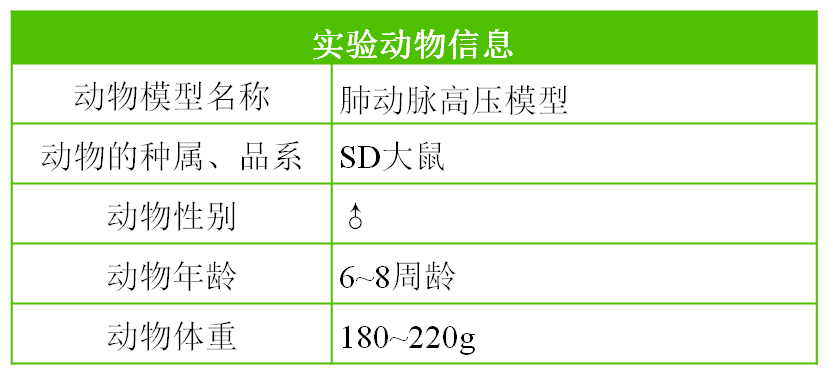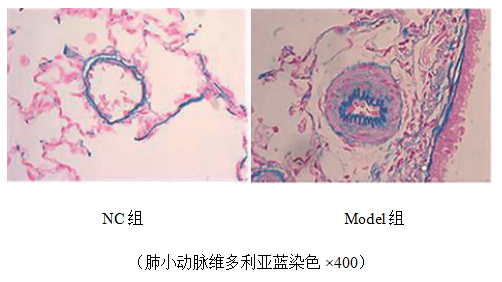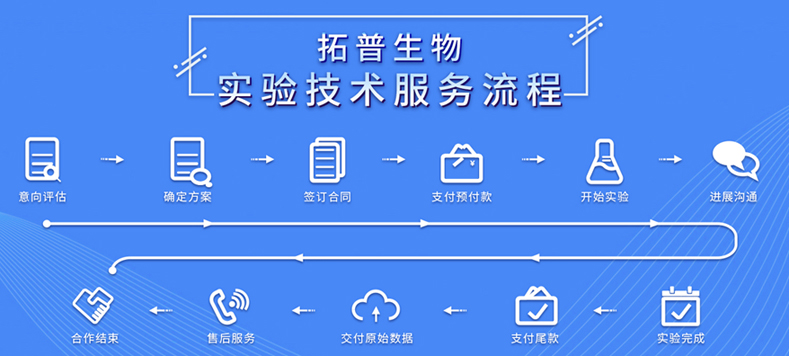Pulmonary arterial hypertension model
Pulmonary arterial hypertension is a progressive and fatal disease that can lead to progressive elevation of pulmonary vascular resistance and pulmonary arterial pressure, leading to right ventricular hypertrophy, heart failure, and even death. According to modeling methods, it can be classified into spontaneous pulmonary hypertension models and non spontaneous pulmonary artery models. Spontaneous animal models are mainly transgenic animals that obtain corresponding pathological and physiological changes through gene knockout and gene embedding techniques; Non spontaneous models can be prepared through surgery, medication, and various environmental factors. Wild lily alkaloid is currently the most widely used animal model of pulmonary arterial hypertension. The advantages of this method are simple modeling, high success rate, and good reproducibility. The disadvantage is that animal mortality is high and there is a significant difference in the pathogenesis of human diseases.

Observation indicators
Hemodynamics, right ventricular hypertrophy index, pulmonary microvascular density, pathological changes in pulmonary arterioles, and measurement of media/outer diameter ratio.
Partial experimental diagram display




